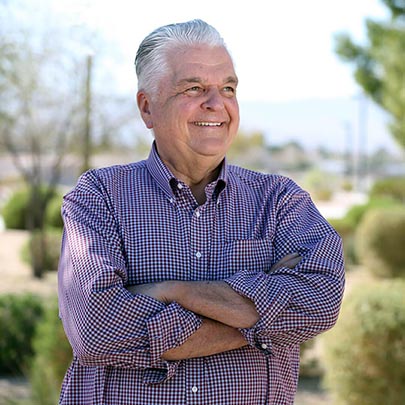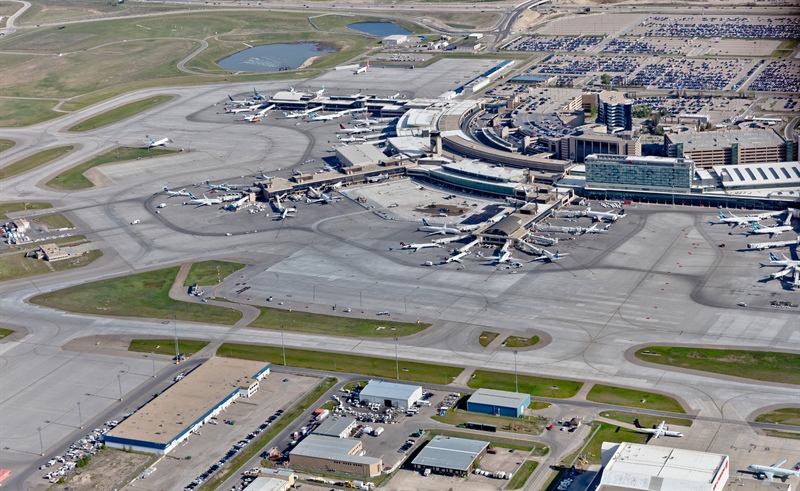
Nevada governor opens up on tech company ‘Innovation Zones’
02 March 2021
by Sarah Wray
Nevada’s governor Steve Sisolak has outlined more details of his controversial proposal to allow technology companies to establish Innovation Zones in the state. The developments are pitched as an “alternative form of local government political subdivision” with powers similar to those of county governments.
The plan for the greenfield smart cities is a bid to diversify Nevada’s economy through technologies such as blockchain, autonomous systems, Internet of Things (IoT), robotics, artificial intelligence, renewables and biometrics, without the need for incentive packages, tax credits or public funding.
Companies in an Innovation Zone would pay taxes like other Nevada businesses as well as an additional special fee placed on the technology that is the focus of the district.
During an online roundtable with Governor’s Office of Economic Development Director Michael Brown and Jeremy Aguero, principal analyst at Applied Analysis, Democrat Sisolak said: “This proposal is an exciting, unprecedented concept that has a potential to position Nevada as a global centre of advanced technology and innovation, while helping to create immediate positive economic impact and shape the economy of the future.
“As we’ve learned in the past, an emergency requires us to throw out the tried-and-true, discard the ‘How We’ve Always Done It’ manual and move on.”
The idea has raised questions about issues such as water resources, governance and risk. While admitting that the “unique and bold” idea may not be “immediately received with open arms,” Sisolak called for open minds about how it could work.
Oversight
To be eligible to create Innovation Zones, applicants would need to demonstrate a track record in advanced technology, own at least 50,000 acres of undeveloped land not within an existing town or city, and agree to invest US$250 million as a start. They would also have to commit to investing a further US$1 billion over ten years.
An independent, three-person board would initially be appointed by the governor – two of whom must be from a list of at least five nominees proposed by the applicant. Later, the board of governors would be elected by voters.
As the Innovation Zones grow, they would take on responsibility for more local services, including taxes, schools and courts.
“I just ask that all involved understand that the end goal is a massive economic development investment in Nevada, and a chance to set down a marker that Nevada is the blockchain technology centre of the world,” Sisolak said.
The draft bill, which has not yet been introduced into the legislature, does not specifically mention Blockchains LLC but the company owns 67,000 acres of land in Northern Nevada where it plans to build a smart city based on blockchain technology.
Slides presented by Brown during the roundtable, based on a study by Applied Analysis, claimed that the project could bring the state 123,000 direct, indirect and induced jobs over the course of a 75-year development, with an overall economic impact of US$16.4 billion.
Resources
Sisolak addressed commentary that the Innovation Zones would be similar to ‘company towns’ – places where most shops and housing, etc. are owned by one company that is also the main employer.
“An Innovation Zone is a self-governing community, organised much like a traditional city or county but wholly focused on the development of innovative and advanced technologies. It is not a ‘company town’,” he said.
Concerns have been raised about the provision of water in an area of scarcity. The draft legislation states that applicants would need to prove that they have secured or can secure access to public utilities and natural resources necessary for the development proposed for the Zone.
Reports suggest that Blockchains is looking at importing some water for its development from rural Nevada.
Patrick Donnelly, State Director with the Center for Biological Diversity, is quoted as saying: “Governor Sisolak wants to give the keys to our state to tech bros, while enabling a water grab which would destroy the environment. We oppose this outrageous corporate giveaway and we oppose the Innovation Zones legislation.”
Sisolak claimed during the online event that environmentally, Innovation Zones are “the most sound concept you can possibly have”.
“You’re starting fresh, you won’t have the waste. You’re going to have the technology which makes transportation better; you’re talking about potential for autonomous vehicles and you’re talking about a carbon neutral footprint and a renewable grid…so that it won’t be reliant upon fossil fuels. This is everything that the environment absolutely needs,” he said.
On why it is necessary to create a separate form of government, Aguero commented: “We’re not talking about retrofitting a community with some type of innovative technology; we’re talking about building a city from the ground all the way up…You’re talking about orders of magnitude different in terms of that technology.”
“I don’t think there’s just one reason but there are many reasons why having a new political subdivision makes logical sense in terms of administering it in an effective way,” he added.
Blockchains LLC has set up the InnovationZoneFacts website which features examples such as Toyota’s Woven City in Japan, which recently broke ground, and the Reedy Creek Improvement District, a special governing jurisdiction for the land of the Walt Disney World Resort in Florida.








